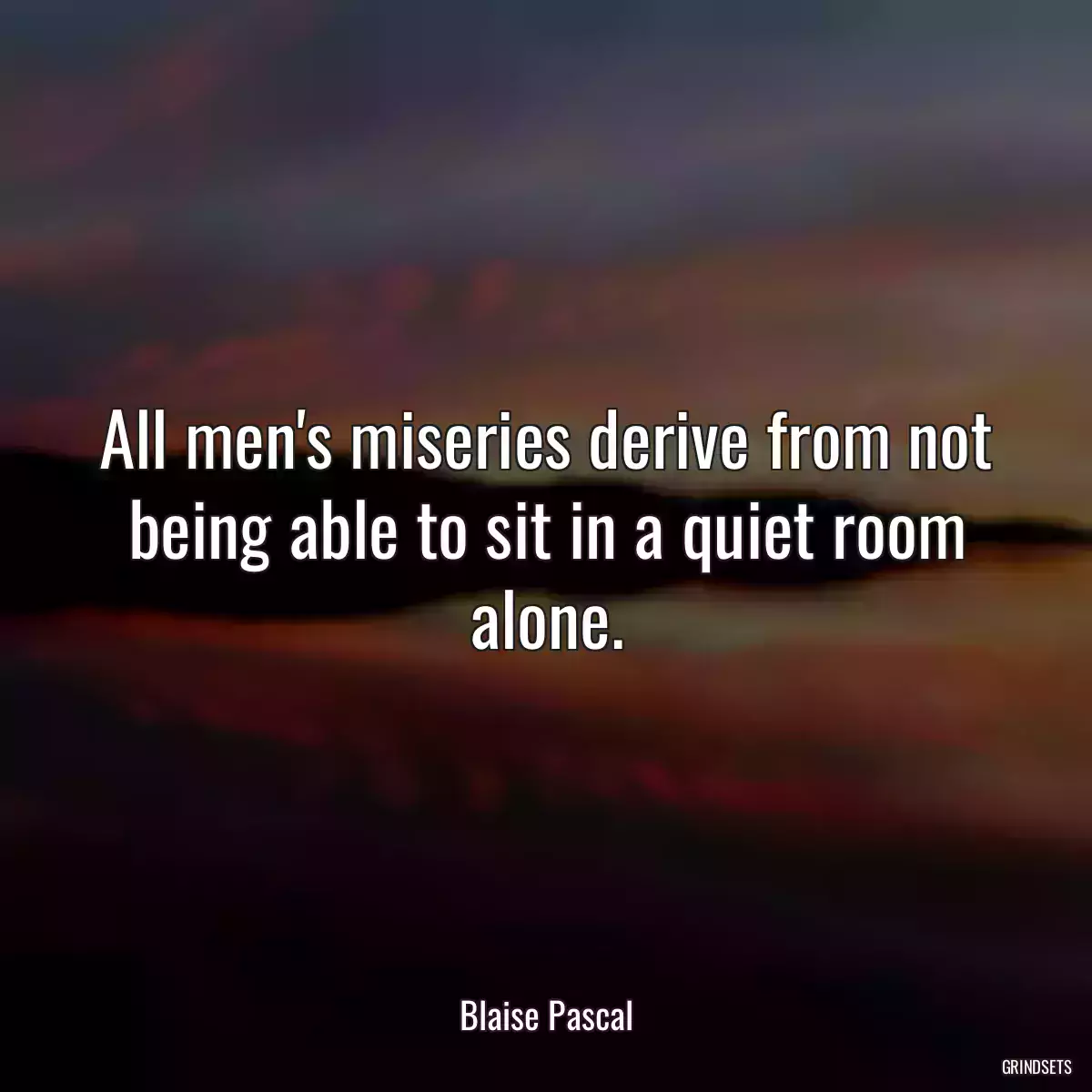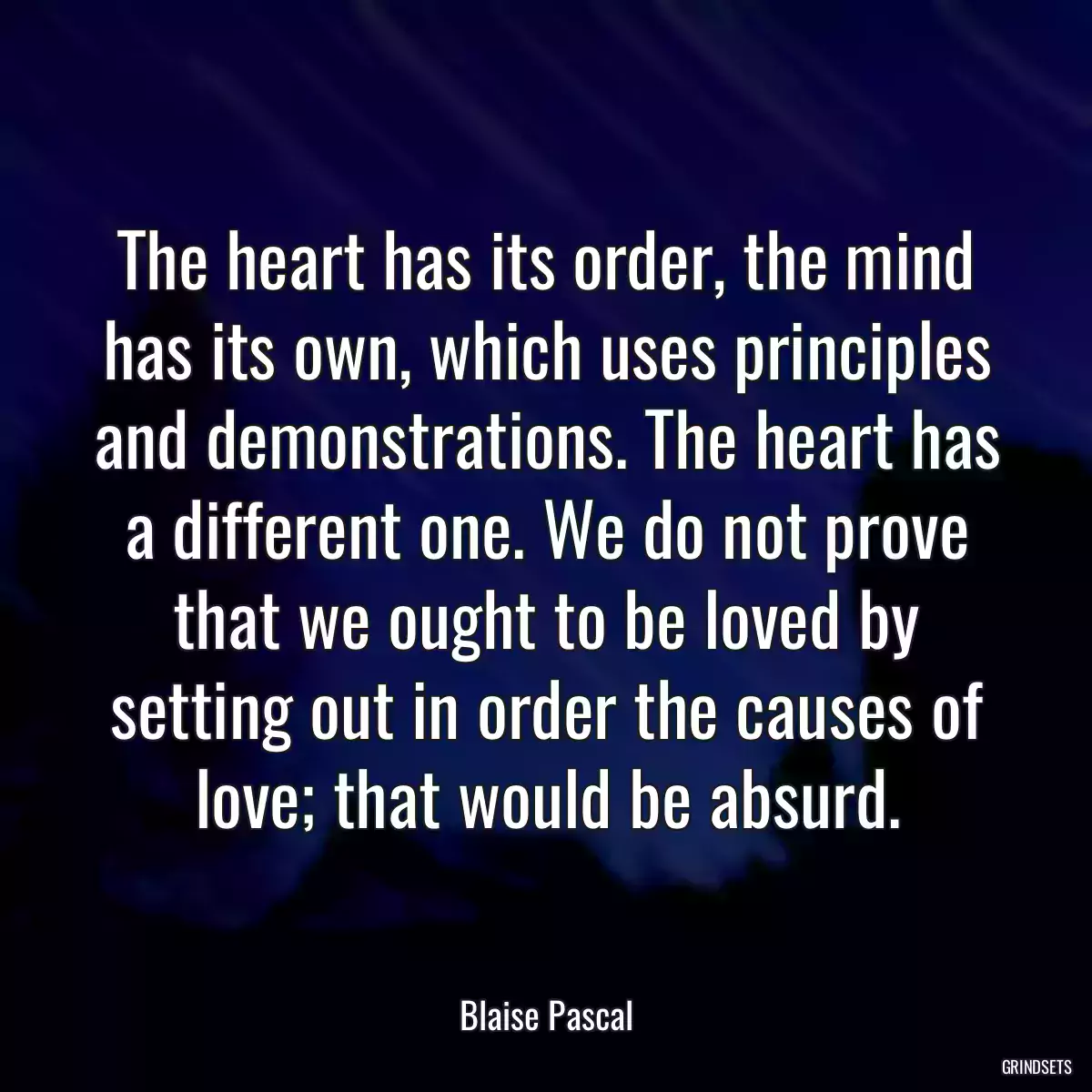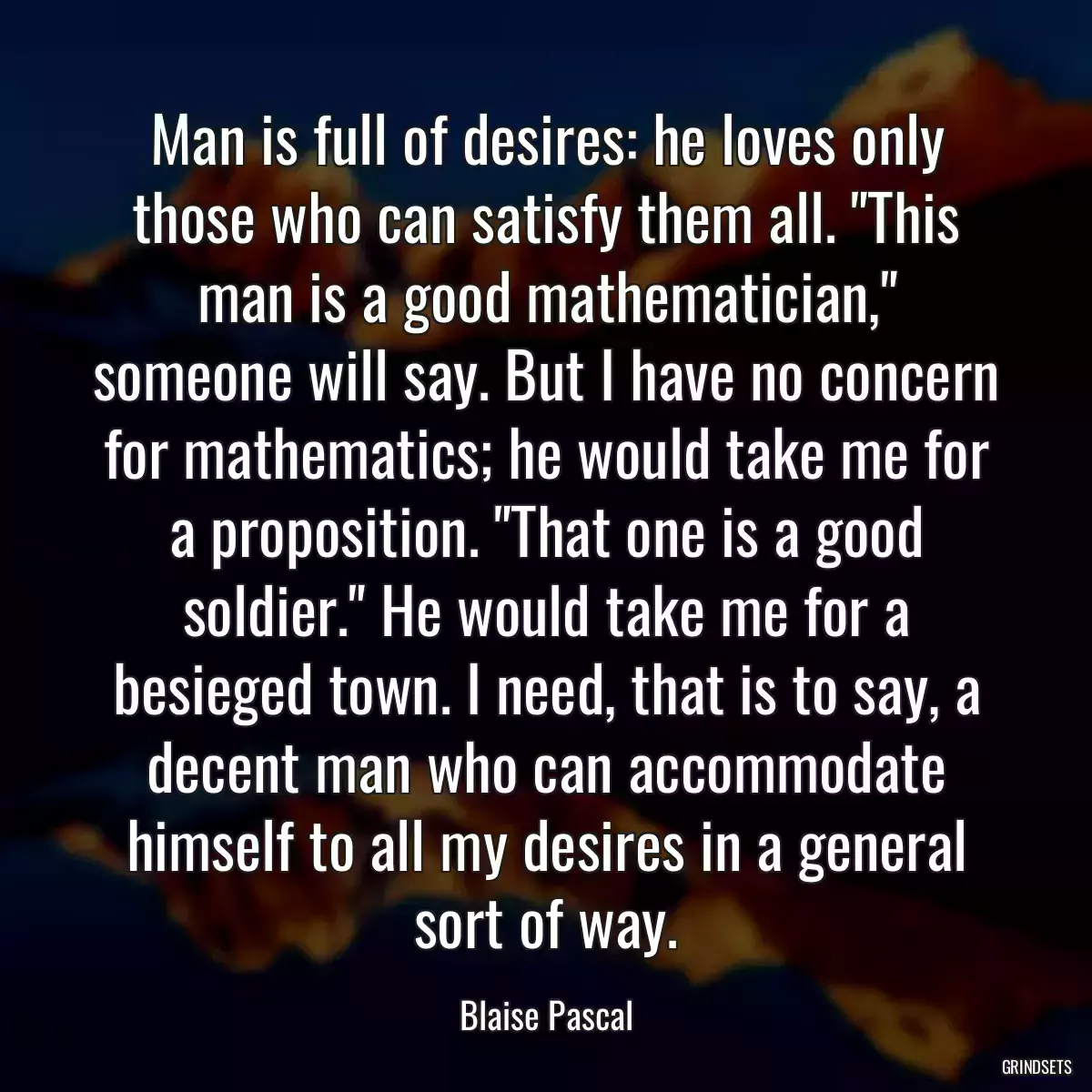
Quotes Blaise Pascal - page 2
Find dozens of Blaise Pascal with images to copy and share.

Fire. God of Abraham, God of Isaac, God of Jacob, not of the philosophers and the scholars. I will not forget thy word. Amen.
What can be seen on earth points to neither the total absence nor the obvious presence of divinity, but to the presence of a hidden God. Everything bears this mark.
Human life is thus only a perpetual illusion; men deceive and flatter each other. No one speaks of us in our presence as he does of us in our absence. Human society is founded on mutual deceit; few friendships would endure if each knew what his friend said of him in his absence, although he then spoke in sincerity and without passion.
You may also like
The consciousness of the falsity of present pleasures, and the ignorance of the vanity of absent pleasures, cause inconstancy.
There was once in man a true happiness of which there now remain to him only the mark and empty trace, which he in vain tries to fill from all his surroundings, seeking from things absent the help he does not obtain in things present.
Extremes are for us as though they were not, and we are not within their notice. They escape us, or we them. This is our true state; this is what makes us incapable of certain knowledge and of absolute ignorance... This is our natural condition, and yet most contrary to our inclination; we burn with desire to find solid ground and an ultimate sure foundation whereon to build a tower reaching to the Infinite. But our whole groundwork cracks, and the earth opens to abysses.
Notre nature est dans le mouvement; le repos entier est la mort. Our nature consists in movement; absolute rest is death.
I have spent much time in the study of the abstract sciences; but the paucity of persons with whom you can communicate on such subjects disgusted me with them. When I began to study man, I saw that these abstract sciences are not suited to him, and that in diving into them, I wandered farther from my real object than those who knew them not, and I forgave them for not having attended to these things. I expected then, however, that I should find some companions in the study of man, since it was so specifically a duty. I was in error. There are fewer students of man than of geometry.

If we submit everything to reason our religion will be left with nothing mysterious or supernatural. If we offend the principles of reason our religion will be absurd and ridiculous . . . There are two equally dangerous extremes: to exclude reason, to admit nothing but reason.
Kind words produce their own image in men's souls; and a beautiful image it is. They soothe and quiet and comfort the hearer. They shame him out of his sour, morose, unkind feelings. We have not yet begun to use kind words in such abundance as they ought to be used.
We run heedlessly into the abyss after putting something in front of us to stop us from seeing it.
The Fall is an offense to human reason, but once accepted, it makes perfect sense of the human condition.
Custom creates the whole of equity, for the simple reason that it is accepted.
Nobody is publicly accepted as an expert on poetry unless he displays the sign of poet, mathematician, etc., but universal men want no sign and make hardly any distinction between the crafts of poet and embroiderer. Universal men are not called poets or mathematicians, etc. But they are all these things and judges of them too. No one could guess what they are, and they will talk about whatever was being talked about when they came in. One quality is not more noticeable in them than another, unless it becomes necessary to put it into practice, and then we remember it.
When a man who accepts the Christian doctrine lives unworthily of it, it is much clearer to say he is a bad Christian than to say he is not a Christian.
To find recreation in amusements is not happiness; for this joy springs from alien and extrinsic sources, and is therefore dependent upon and subject to interruption by a thousand accidents, which may minister inevitable affliction.
You may also like

Man is full of desires: he loves only those who can satisfy them all. "This man is a good mathematician," someone will say. But I have no concern for mathematics; he would take me for a proposition. "That one is a good soldier." He would take me for a besieged town. I need, that is to say, a decent man who can accommodate himself to all my desires in a general sort of way.
What use is it to us to hear it said of a man that he has thrown off the yoke that he does not believe there is a God to watch over his actions, that he reckons himself the sole master of his behavior, and that he does not intend to give an account of it to anyone but himself?